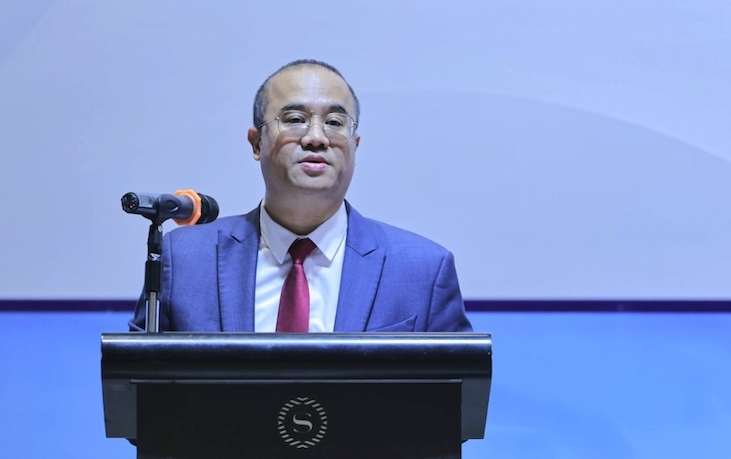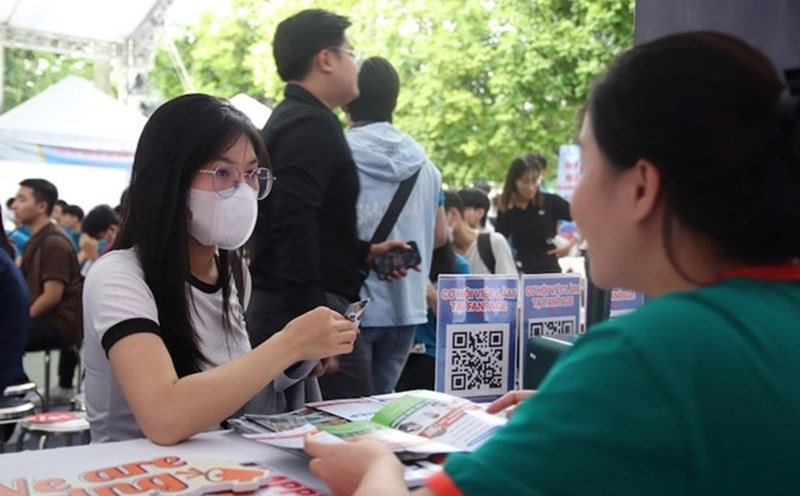This is an in-depth topic discussed at the Workshop to announce the Vietnam Economic Yearly Report 2025 organized by the University of Economics, Vietnam National University, Hanoi in collaboration with the Friedrich Naumann Foundation (FNF) Vietnam on June 25.
Speaking at the Workshop, Associate Professor, Dr. Dao Thanh Truong - Deputy Director of Hanoi National University acknowledged that Vietnam is facing breakthrough opportunities but also facing many challenges in long-term growth.
In that context, today's industrial policies are not only technical tools, but need to become a national strategy - helping to unlock growth momentum, orient resource allocation, promote innovation and form private enterprises with global competitiveness.
Associate Professor, Dr. Nguyen Truc Le - Chairman of the Council of the University of Economics, said that modern industrial policies need to be creative, promote innovation and sustainable development. In particular, the processing and manufacturing industry continues to play a key role, contributing more than 24% of GDP and over 80% of export turnover. It is necessary to strengthen public-private linkages, encourage investment in segments with high added value and promote localization.

"We need to proactively adapt to trends such as digital transformation, green transformation and global supply chain restructuring. Industrial policies must take the lead, create motivation, remove barriers and support businesses to develop, especially in foundational fields such as new materials, smart manufacturing, renewable energy, medical equipment, etc. - Associate Professor, Dr. Nguyen Truc Le said.
Sharing at the workshop, Ms. Vanessa Kristina Steinmetz - Director of FNF Vietnam affirmed that the private sector is the "most dynamic driver" of the economy, while emphasizing the importance of institutional reform, ensuring healthy competition, creating conditions for access to capital, technology and skills - decisive factors for private enterprises to develop more strongly.

Industrial policies need to not only lead, but also give strength to the private sector, she said.
According to Dr. Can Van Luc - an economic expert, Vietnam has achieved important achievements in industrial policy but still has some shortcomings such as: The level of added value in the manufacturing and processing industry is not much, mainly dependent on foreign-invested enterprises. Our country's manufacturing and processing industry mainly relies on product exports; up to 72% of FBI contributions to exports.
"The connection of domestic enterprises with foreign enterprises, large enterprises with small enterprises on the value chain of the manufacturing and processing industry is not good enough.
In addition, our country's competitiveness and productivity in this field are still relatively low compared to the region" - Mr. Luc analyzed.
Regarding solutions, Mr. Luc said that the Party and State have had clear and drastic orientations and policy mechanisms to create breakthroughs, promote the Vietnamese economy in general and the private economy in particular.
"For the private economic sector, I recommend that it be implemented effectively, urgently and quickly Resolution 68 of the Politburo as well as Resolution 198 of the National Assembly that has been issued in the past.
Enterprises and households themselves must also promote their internal strength to improve their competitiveness. Thereby, it can contribute more to the private economic sector as well as the national economy" - Dr. Can Van Luc said.
The Vietnam Economic Annual Report is a product of the University of Economics - Vietnam National University, Hanoi. The book has been continuously published and published over the past 17 years, focusing on independent and objective analysis of achievements, difficulties, opportunities and challenges in the development process of the Vietnamese economy, contributing to providing a scientific basis for macroeconomic policy making.











